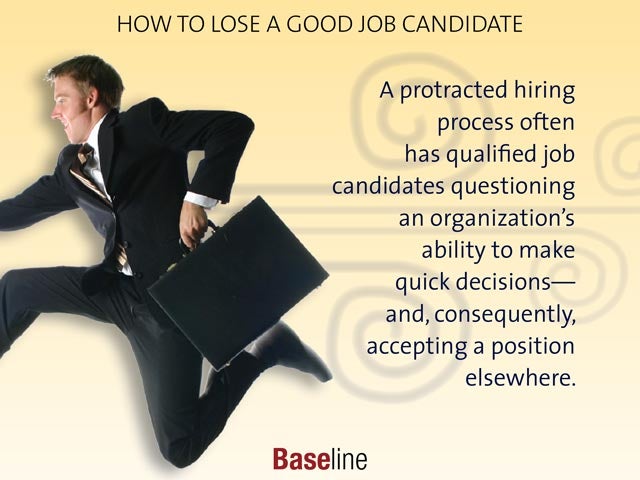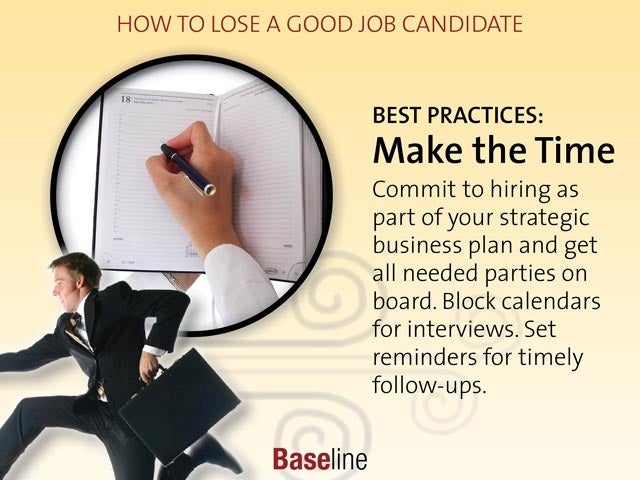
How to Lose a Good Job Candidate
 How to Lose a Good Job Candidate
How to Lose a Good Job Candidate
A protracted hiring process often has qualified job candidates questioning an organization’s ability to make quick decisions—and, consequently, accepting a position elsewhere.
 Slow Burn
Slow Burn
57% of workers said the most frustrating part of a job search is the long wait after an interview.
 Lost Opportunity
Lost Opportunity
23% said they lose interest in a potential employer if they don’t hear back from the employer within one week after the initial interview, and another 46% lose interest if there’s no status update from one to two weeks after the interview.
 Culture Concern
Culture Concern
32% said that a protracted hiring process makes them question the organization’s ability to make other decisions.
 Hiring Deadline
Hiring Deadline
39% said that a job hiring process that takes seven to 14 days to complete after the interview is too long, and 24% said 15 to 21 days is too long.
 Best Practices: Make the Time
Best Practices: Make the Time
Commit to hiring as part of your strategic business plan and get all needed parties on board. Block calendars for interviews. Set reminders for timely follow-ups.
 Best Practices: Boost Agility
Best Practices: Boost Agility
Review job descriptions and salary ranges to assess where you have enough flexibility to more rapidly bring on a strong candidate into an appropriate slot.
 Best Practices: Streamline Interviews
Best Practices: Streamline Interviews
Conduct preliminary ones via phone, Skype or FaceTime. Then consolidate in-person interviews to one day—then get immediate feedback from all interviewers to determine interest levels.
 Best Practices: Set Expectations
Best Practices: Set Expectations
Make timelines for status updates and final decisions clear to candidates. If there are delays, give them a heads-up. Silence is often interpreted as a lack of interest or indecision.
 Best Practices: Expedite the Offer Process
Best Practices: Expedite the Offer Process
You can reduce “time to offer” by making a verbal commitment that is contingent on satisfactory reference and background checks.